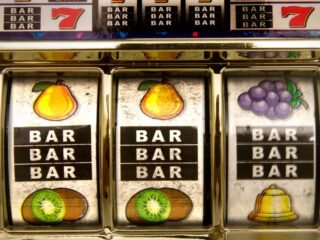
Slot machines have captivated the imaginations of gamblers for decades with their bright lights, jingling sounds, and the promise of big wins. As these machines have become a staple in casinos worldwide, so too have the superstitions and myths surrounding them. This article delves into some of the most common slot machine superstitions and myths, exploring their origins and how they influence players today.
Origins of Slot Machine Superstitions
The history of slot machine superstitions is as colorful as the machines themselves. These superstitions often stem from a combination of folklore, psychological tendencies, and the inherent randomness of slot machines.
Early Gambling Superstitions
Gambling superstitions have existed for centuries. Ancient gamblers believed in luck, charms, and rituals to influence their outcomes. Early slot machines, with their mechanical reels and simplistic designs, quickly became the focus of such beliefs. The more the machines evolved, the more superstitions adapted to fit the new technology.
The Rise of Modern Superstitions
As slot machines became more sophisticated, incorporating digital technology and random number generators (RNGs), new superstitions emerged. Players began to develop beliefs about how certain actions or habits could influence the outcome of their spins. These modern myths often reflect the growing complexity and mystery surrounding machines.
Common Slot Machine Superstitions
Superstitions play a significant role in the psychology of gambling. Here are some of the most prevalent slot machine superstitions that players hold onto:
The “Hot” and “Cold” Machine Myth
One of the most common superstitions is the belief that some machines are “hot” or “cold.” The idea is that a machine that has recently paid out is less likely to do so again soon (cold), while a machine that hasn’t paid out for a while is due for a big win (hot).

This myth is rooted in the gambler’s fallacy—the erroneous belief that past events can influence future outcomes in random systems. In reality, each spin on a keluaran hk slot machine is independent of the previous one, thanks to RNGs.
The “Lucky” Time of Day
Another widespread superstition is the belief that certain times of day are more fortunate than others. Some players think that playing in the morning, evening, or during specific lunar phases can affect their chances of winning. This belief often arises from personal experiences or anecdotal evidence rather than any scientific basis. In truth, the time of day does not influence the outcome of a slot machine.
Rituals and Superstitions
Many players have their rituals or superstitions they believe will bring them luck. This can include things like tapping the machine before playing, playing with a specific coin or token, or even wearing “lucky” clothing. These rituals often provide a sense of control or comfort, but they have no impact on the machine’s randomness or the odds of winning.
Myths About Slot Machine Technology
Understanding the technology behind slot machines can help debunk some of the myths that persist among players.
Random Number Generators (RNGs)
Modern slot machines use RNGs to determine the outcome of each spin. RNGs are complex algorithms that generate thousands of random numbers per second, ensuring that each spin is completely independent of the last. This technology eliminates the possibility of patterns or biases in the game’s outcomes, dispelling myths about machines being rigged or influenced by player behavior.
Progressive Jackpots and “Due” Wins
Progressive jackpots are often subject to superstitions. Some players believe that a machine with a large progressive jackpot is more likely to pay out soon. This belief is based on the idea that the machine is “due” for a win. However, the reality is that the likelihood of hitting a progressive jackpot is based on the same RNG principles as other slot games. The size of the jackpot does not affect the odds of winning.
The Psychological Appeal of Superstitions
Superstitions and myths about slot machines are deeply ingrained in gambling culture, largely due to their psychological appeal.
The Illusion of Control
Superstitions often give players a false sense of control over the outcome of their games. By performing rituals or adhering to certain beliefs, players may feel more confident and engaged, even though these actions do not influence the actual results.

This psychological effect can enhance the enjoyment of the game, even if it doesn’t improve the odds.
Cognitive Biases and Gambling
Cognitive biases, such as the gambler’s fallacy and confirmation bias, play a significant role in the perpetuation of slot machine myths. The gambler’s fallacy leads players to believe that past outcomes can influence future ones, while confirmation bias causes players to remember wins and overlook losses. These biases reinforce superstitions and myths, keeping them alive in gambling culture.
Conclusion
Slot machine superstitions and myths are a fascinating aspect of gambling culture. While they may provide players with a sense of comfort or control, it’s important to recognize that they are not grounded in reality. The technology behind slot machines ensures that each spin is random and independent, debunking many of the common myths. Understanding the true nature of slot machines can help players approach the game with a clearer perspective and a more enjoyable experience.



